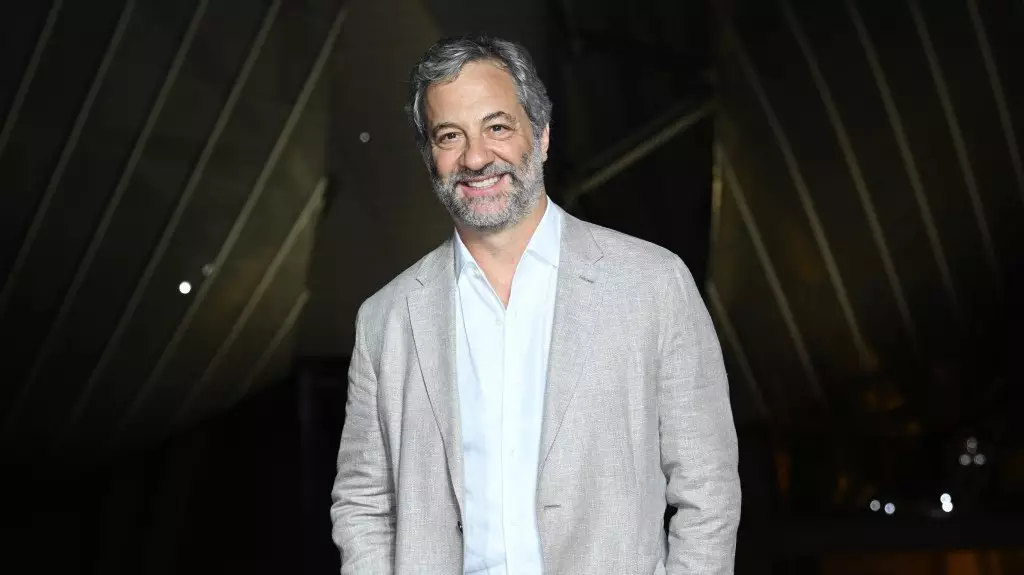The landscape of contemporary entertainment has undergone a seismic shift that has not gone unnoticed by notable figures in the industry. Recently, Judd Apatow, a highly acclaimed producer and director, opened up about his concern regarding the current trends dominating Hollywood storytelling. During an appearance on Dana Carvey and David Spade’s *Superfly* podcast, Apatow critiqued the inclination toward sensationalism in modern filmmaking. The crux of his argument rests on the idea that an obsession with intensity prevails, overshadowing the nuanced and grounded narratives that once characterized the film industry.
“If It Bleeds, It Leads”: The New Reality
Apatow likened the current entertainment approach to the philosophy prevalent in the newspaper business. He suggested that the motto “If it bleeds, it leads” has crept its way into streaming platforms and major studio releases. This trend emphasizes high-stakes drama and hyperbolic themes while marginalizing more subdued yet compelling storytelling. He elucidated that the majority of content being produced revolves around either mega-celebrities or grim subjects such as serial killers, effectively creating a culture where thrillers and sensational narratives dominate the screen.
Apatow’s critique sheds light on a growing fear amongst filmmakers: the apprehension that softer or quieter stories might fail to capture audience attention. The prioritization of viewership statistics has given rise to what he describes as “doomscrolling,” where audiences remain glued to excessively intense programming out of fear of missing out—or perhaps out of sheer stimulation.
Another salient point raised by Apatow relates to how obsession with audience metrics, exemplified by streaming algorithms, has shaped content creation. He referenced a notable scene from HBO’s *Barry*, where audience completion rates dictate a show’s fate, further underscoring the industry’s fixation on viewer retention. This phenomenon has resulted in a homogenization of content; in an effort to grip audiences, subtler narratives are often sacrificed on the altar of explosive storytelling. The palpable intensity, he argues, diminishes the opportunity for authentic, human experiences to resonate on screen.
Comedian David Spade further illustrated this point, drawing parallels with social media platforms like TikTok, where content creators often resort to clickbait tactics to maximize viewership. This practice promotes superficial engagement rather than genuine connection, which is increasingly feeding a cycle of overstimulation within the audience.
While Apatow’s observations are undeniably pertinent, they also serve as a broader commentary on the fundamental evolution of storytelling within the entertainment industry. His distinguished career—marked by hits such as *The 40-Year-Old Virgin* and *Freaks and Geeks*—highlights his dedication to weaving narratives that reflect the complexities of everyday life. As he embarks on directing a documentary about Mel Brooks, Apatow’s commitment to highlighting original, character-driven stories appears steadfast.
Ultimately, Judd Apatow’s poignant critique underscores a critical need for balance in modern storytelling. As audiences yearn for deeper, more relatable portrayals, the challenge rests on the industry to embrace diverse narratives that transcend the relentless demand for intensity, thereby nurturing a richer cultural tapestry. The call for variety in storytelling is louder than ever, and it remains to be seen how the industry will respond.

Leave a Reply